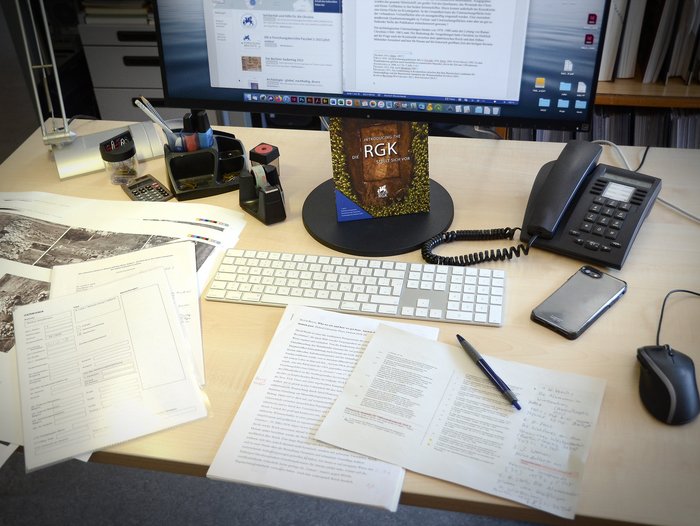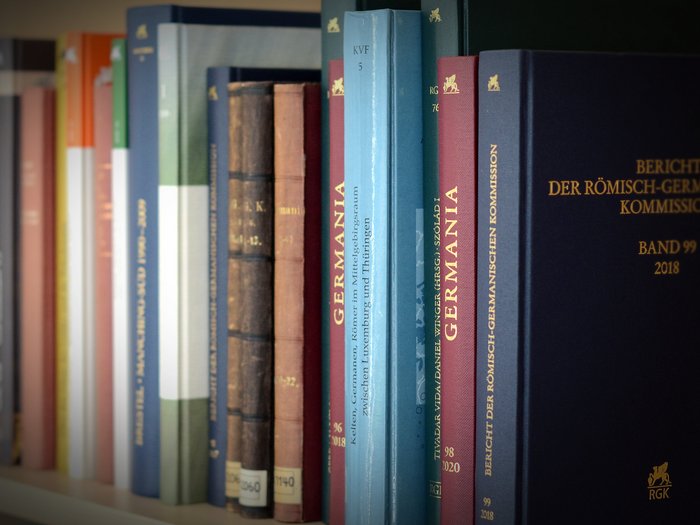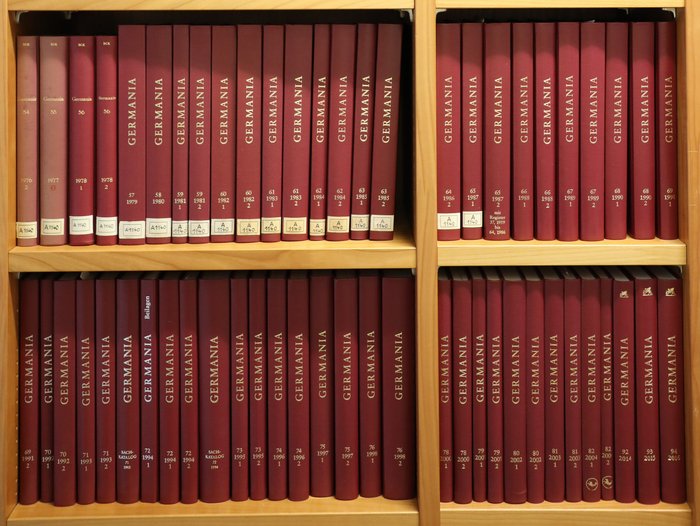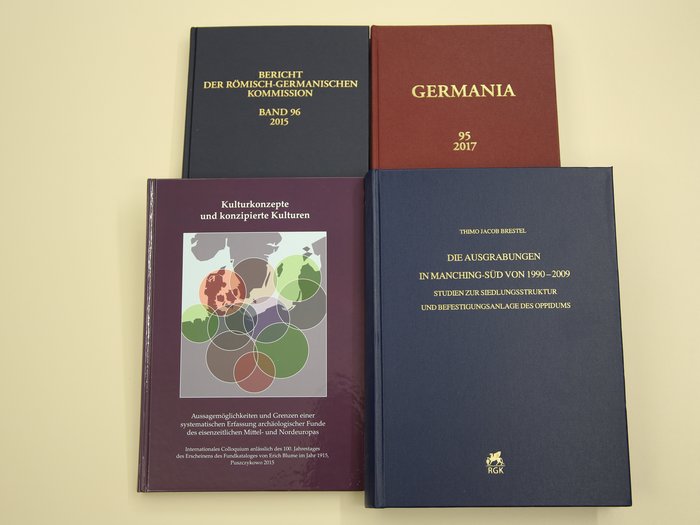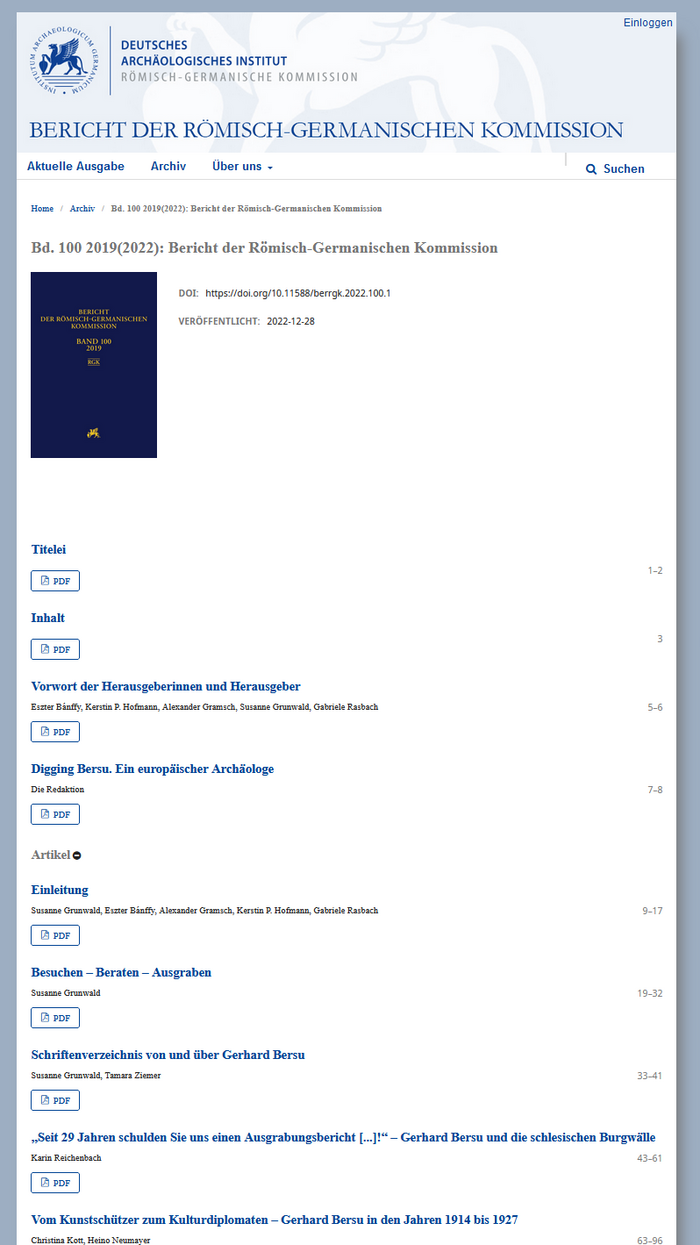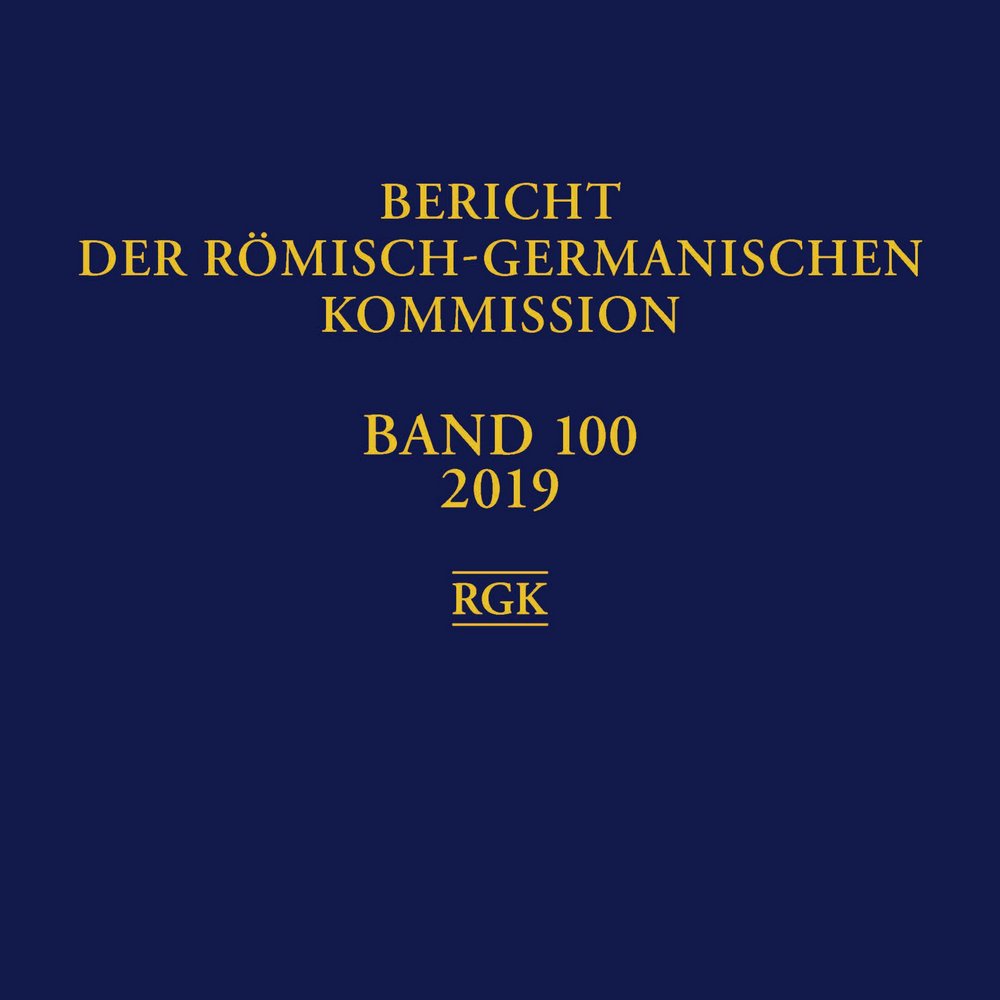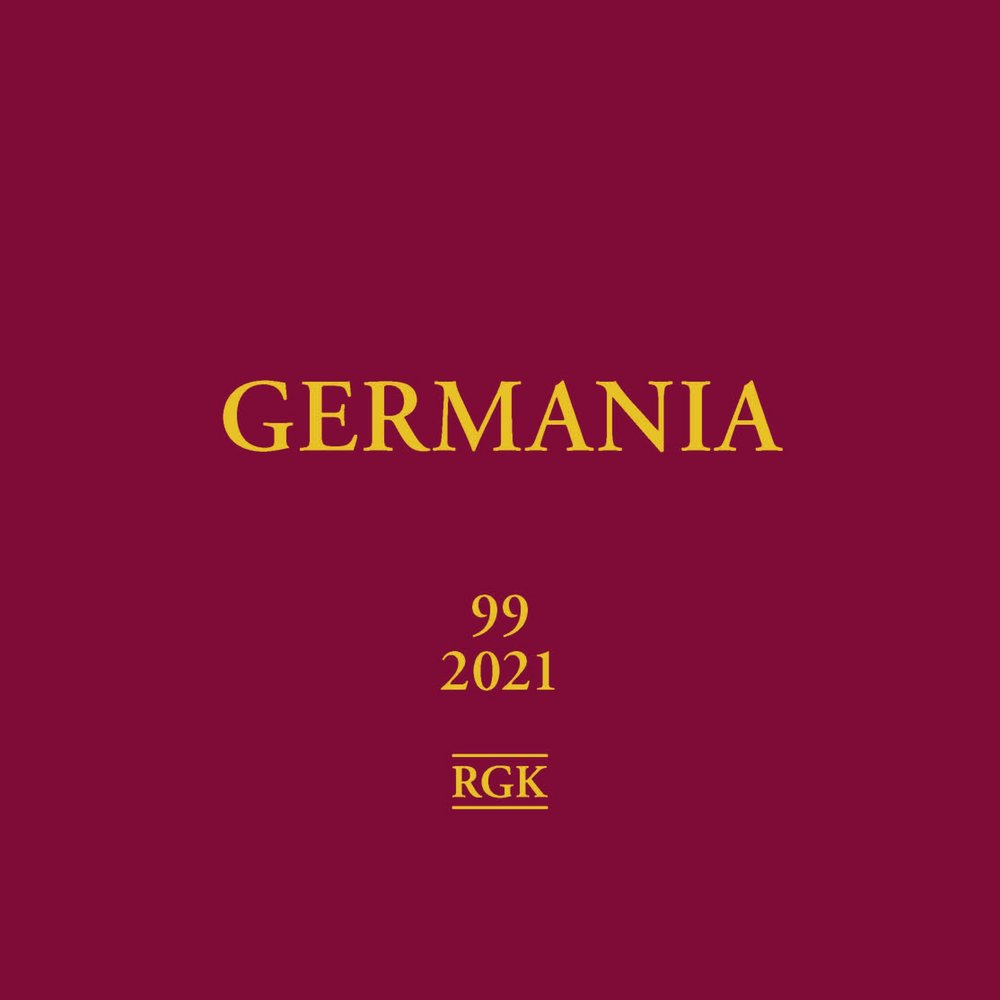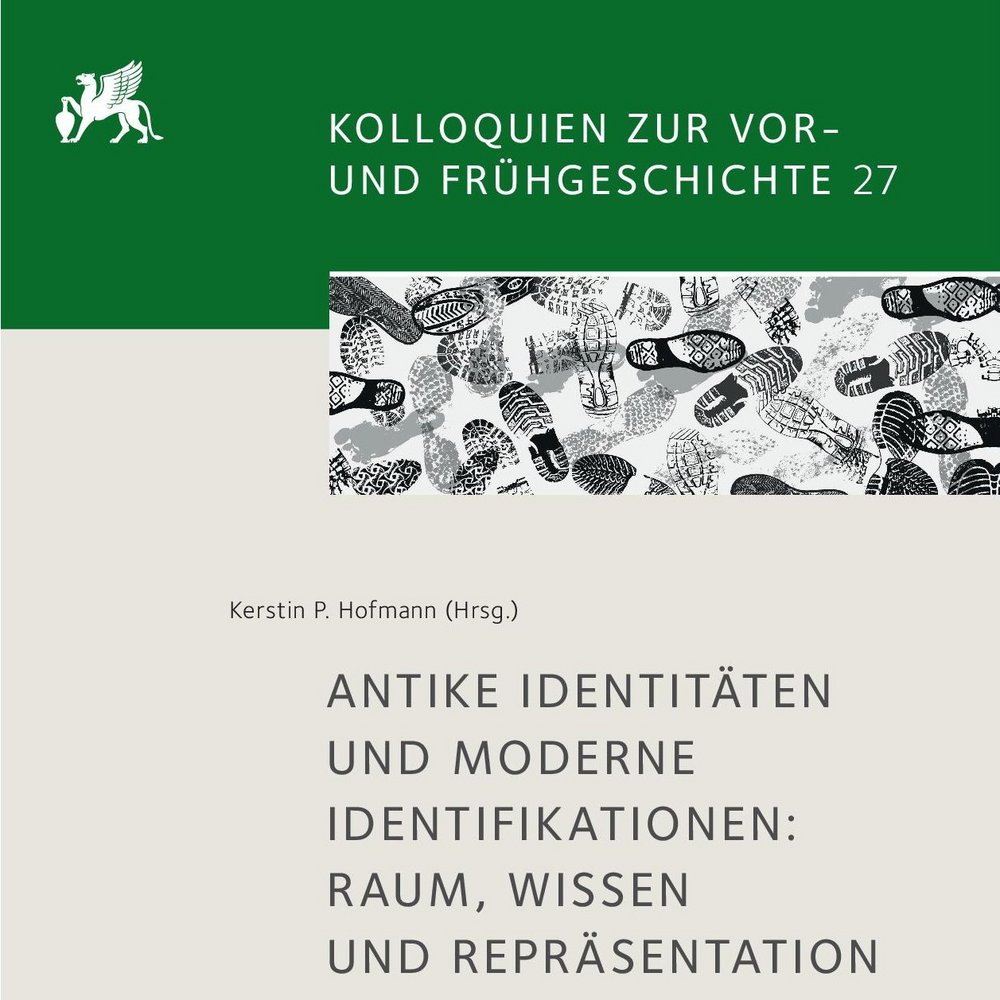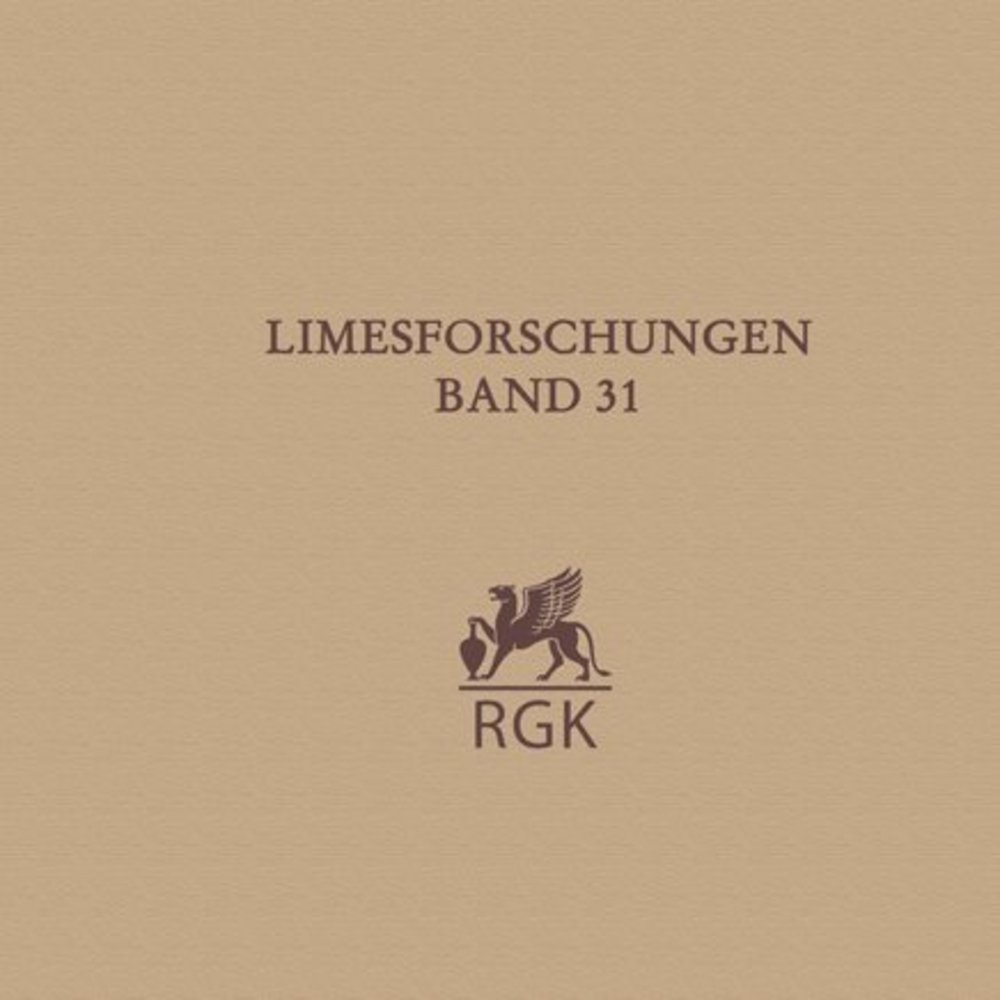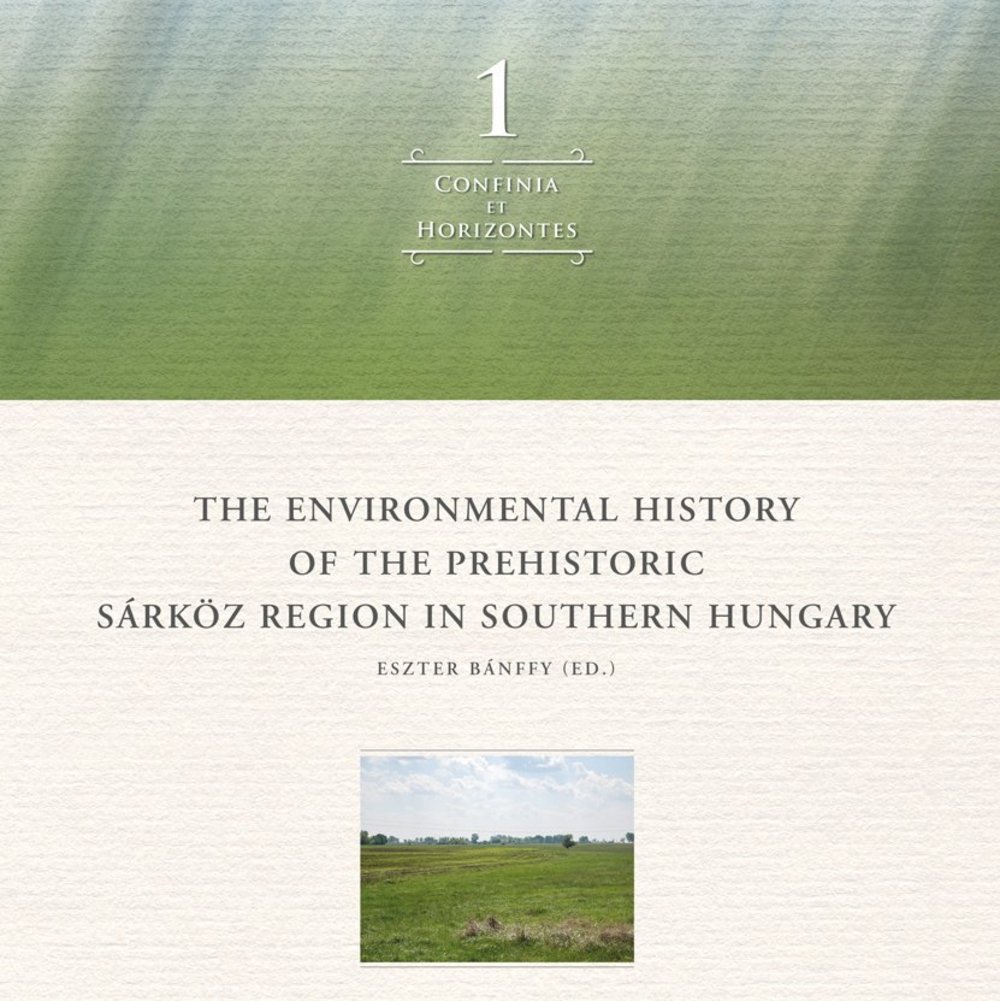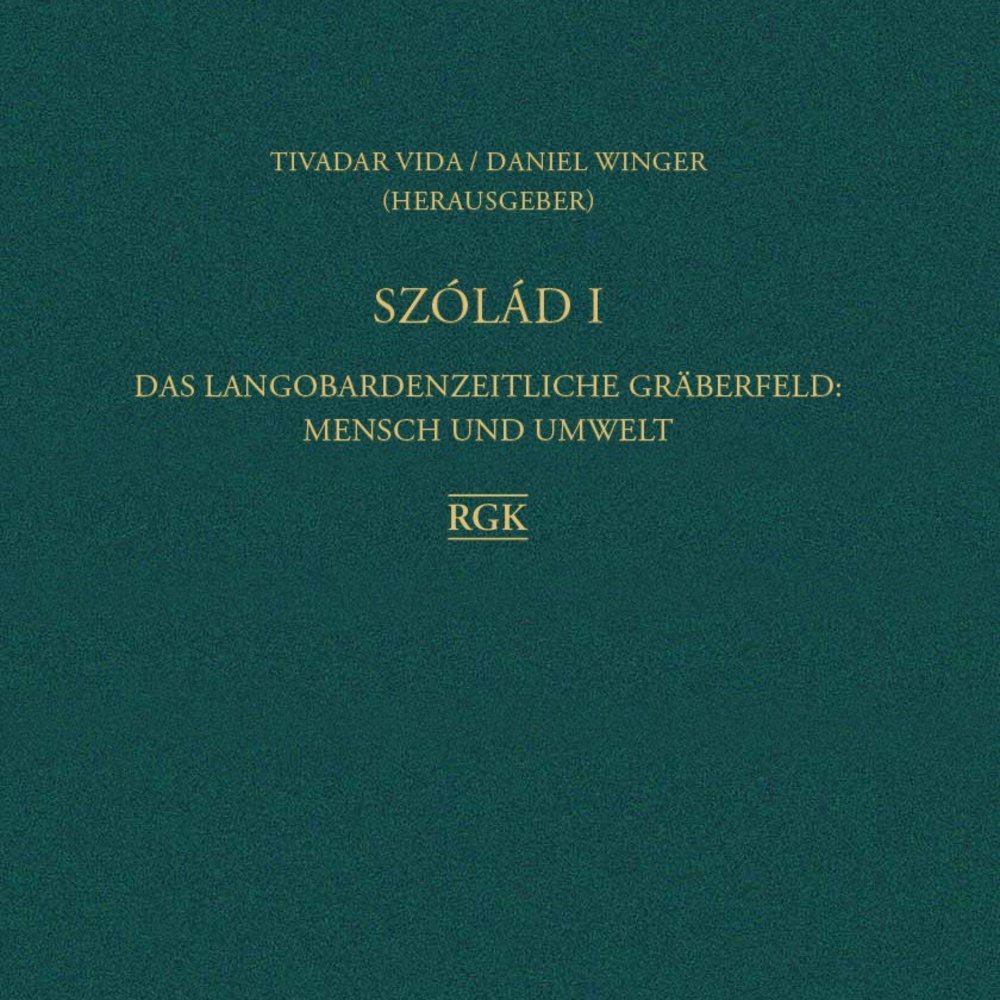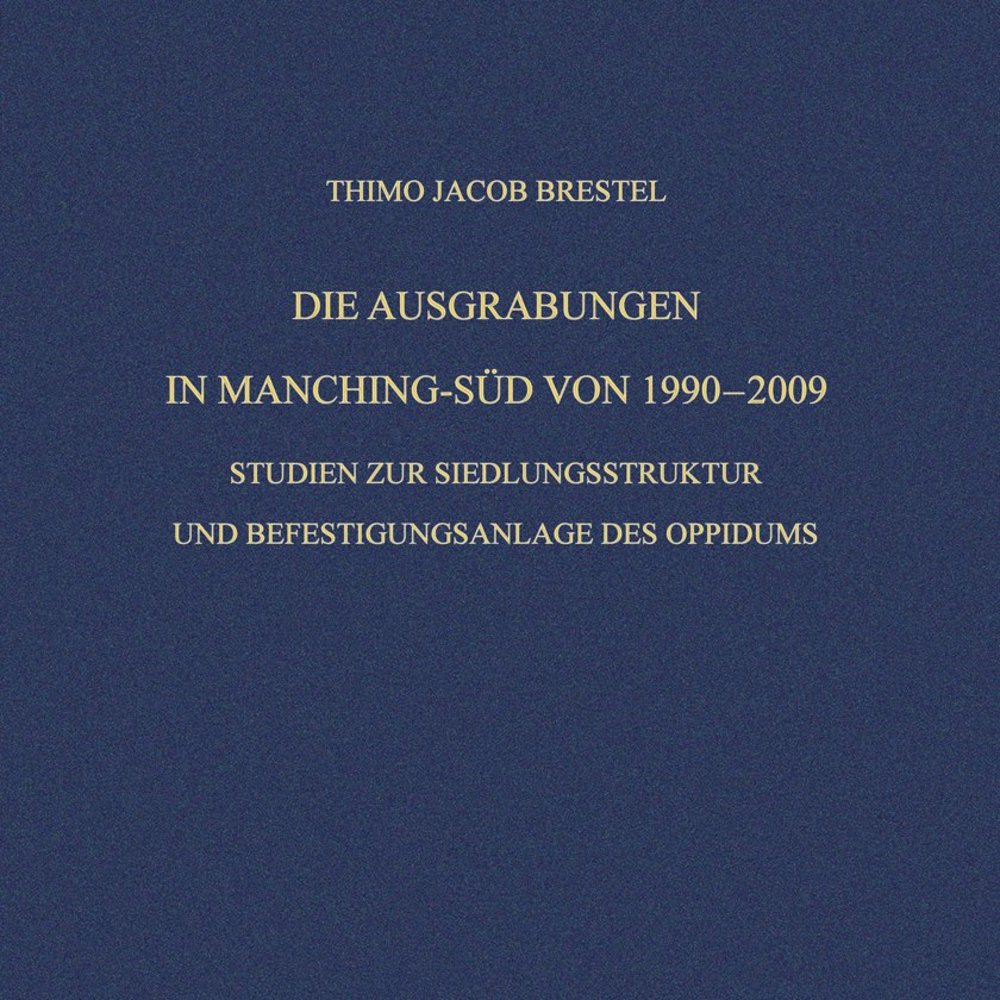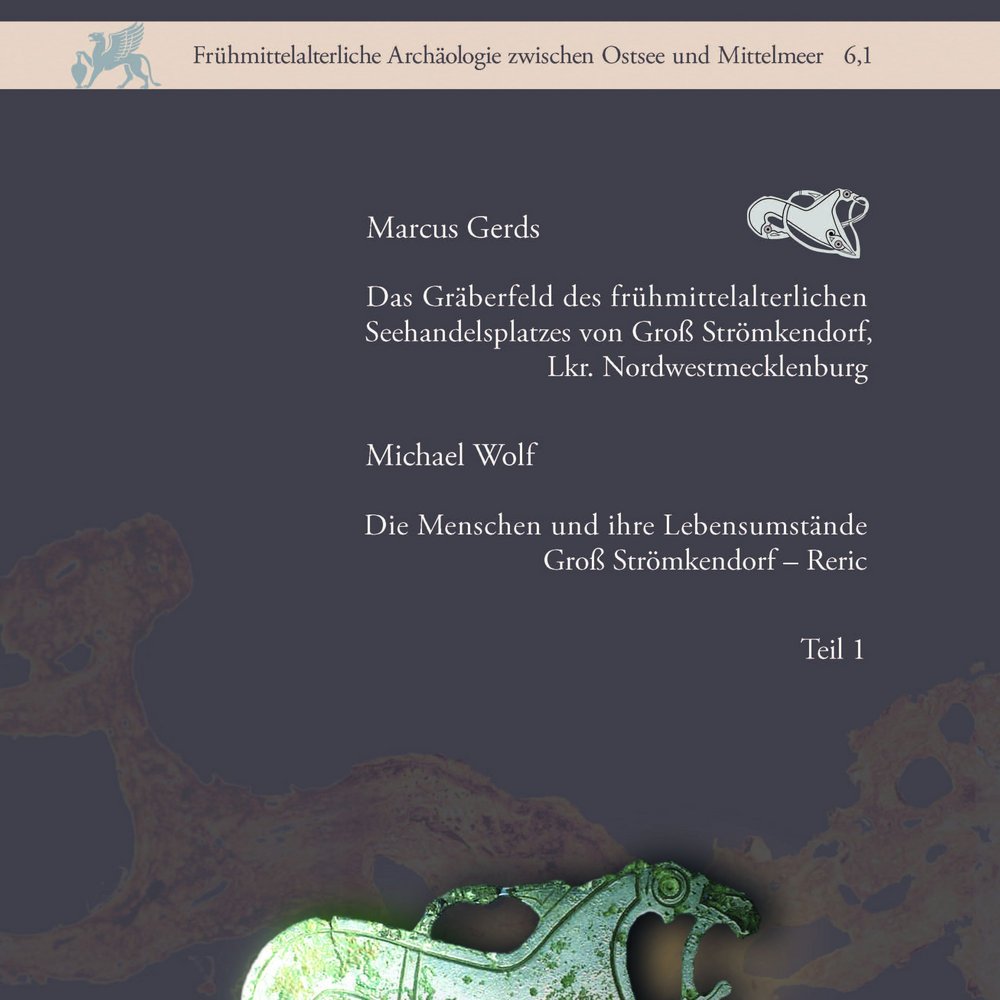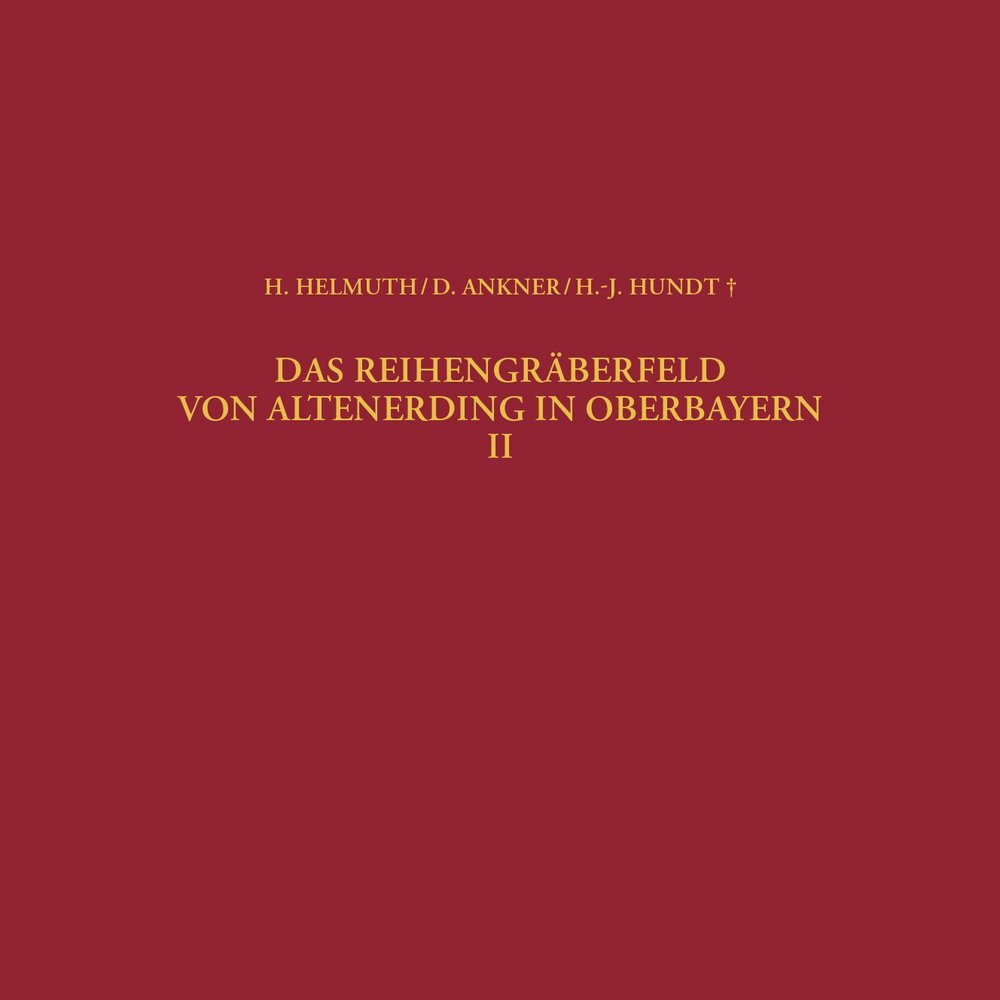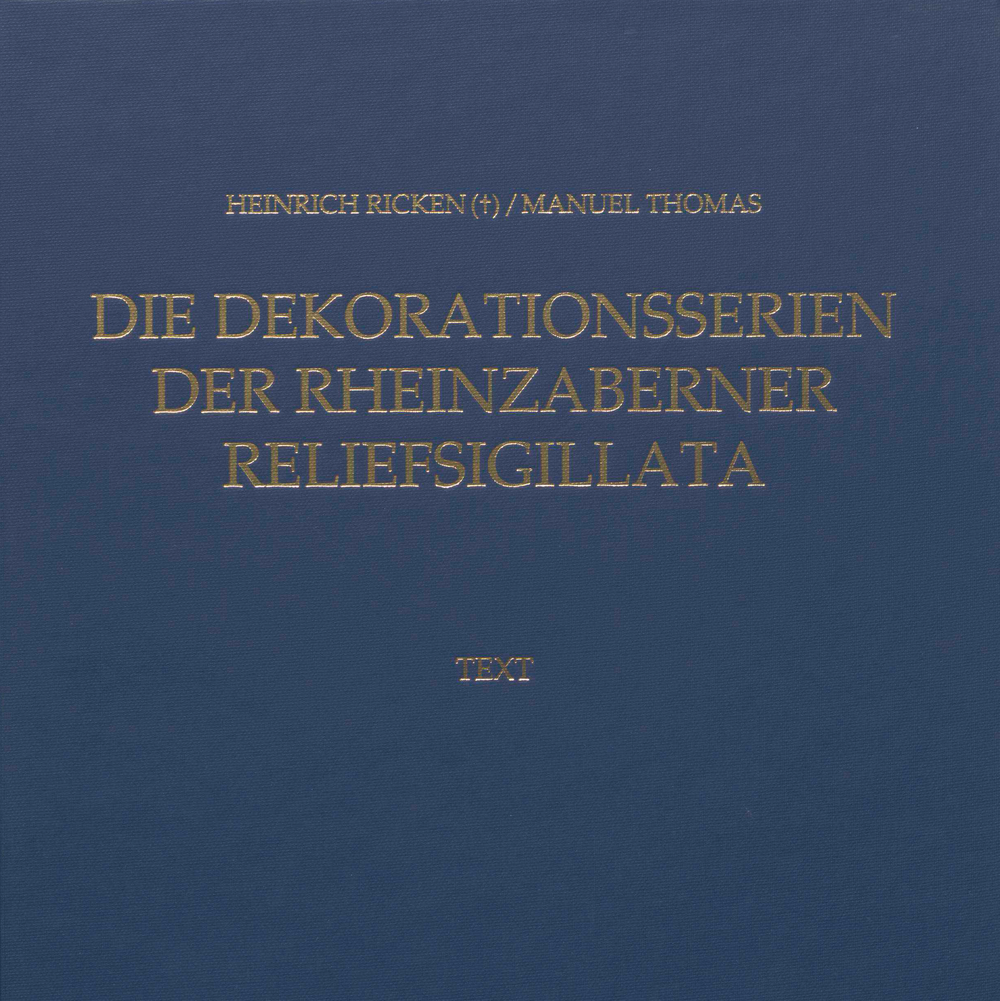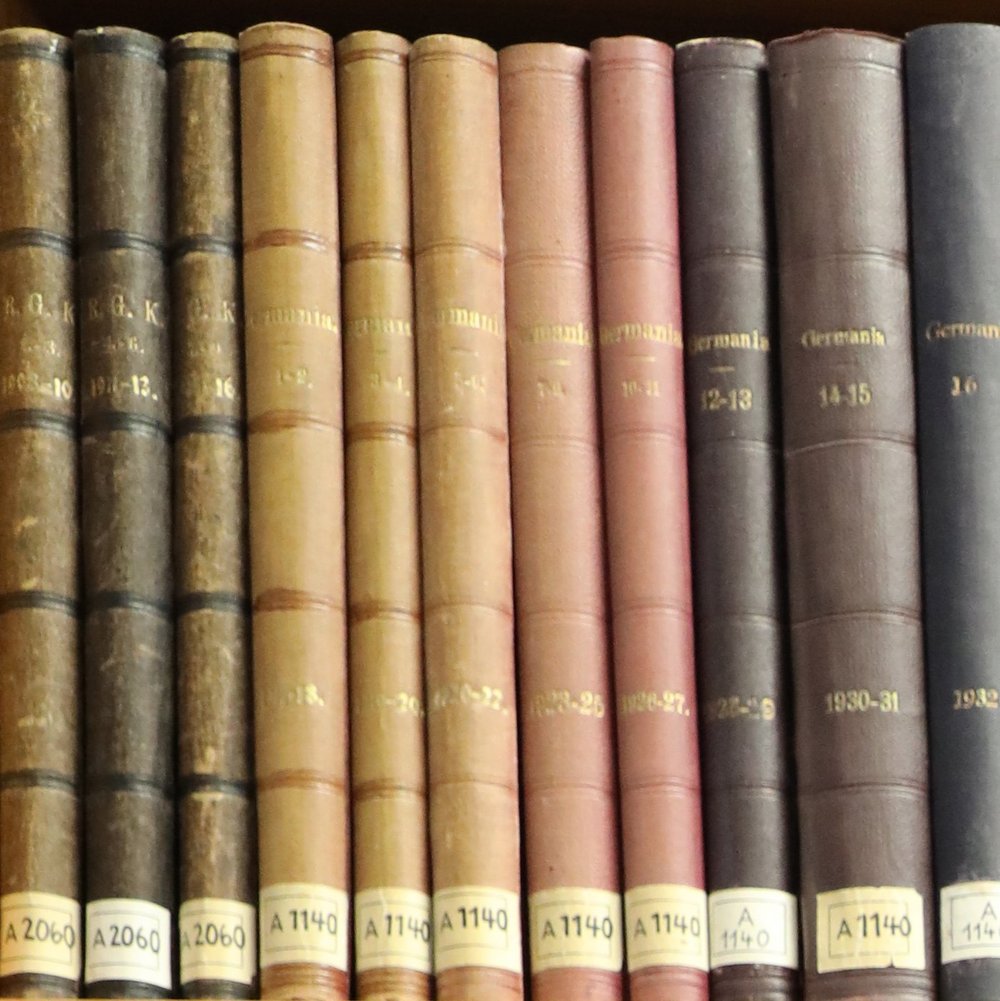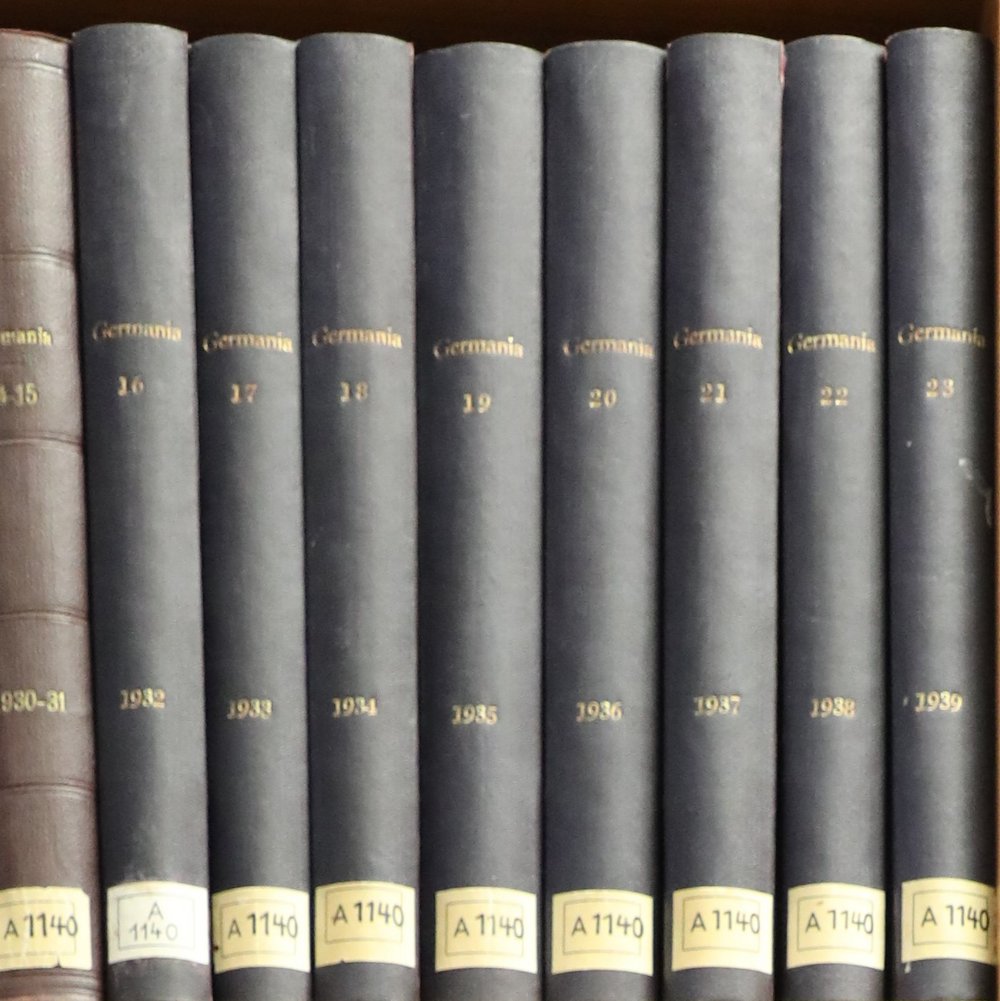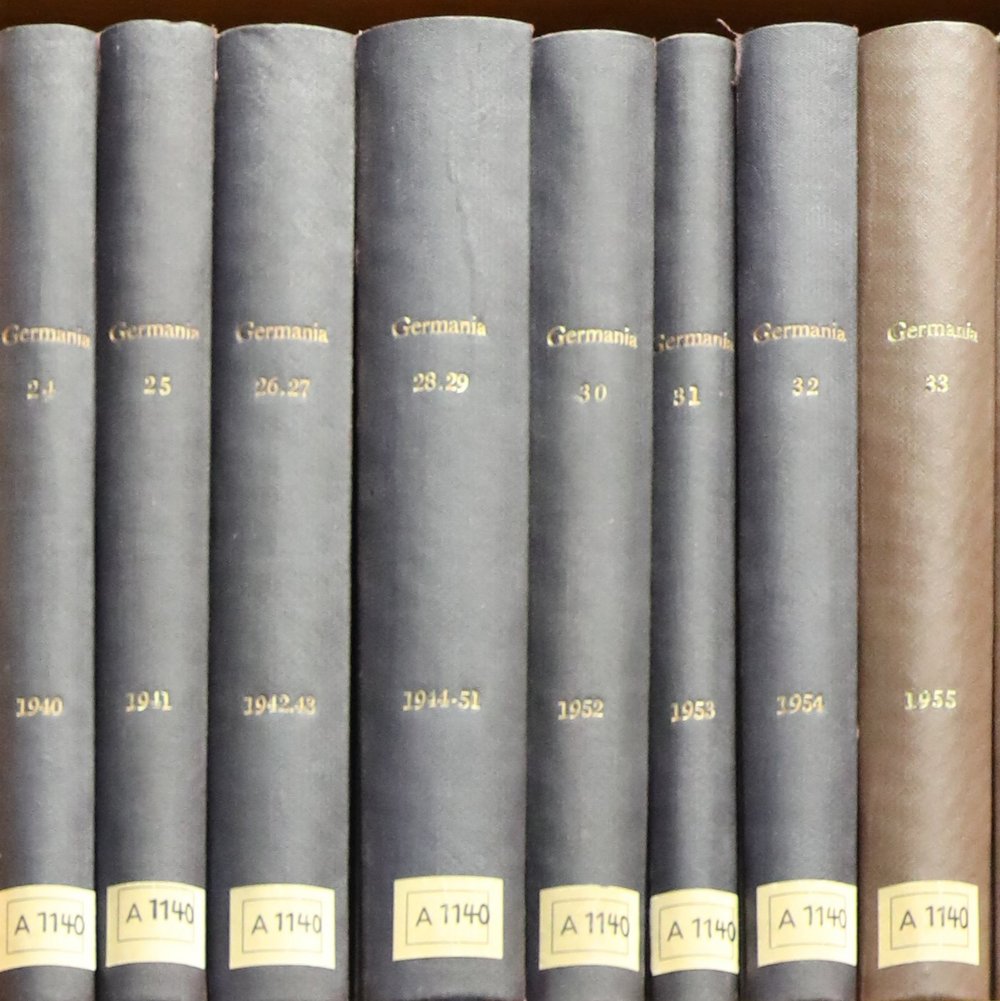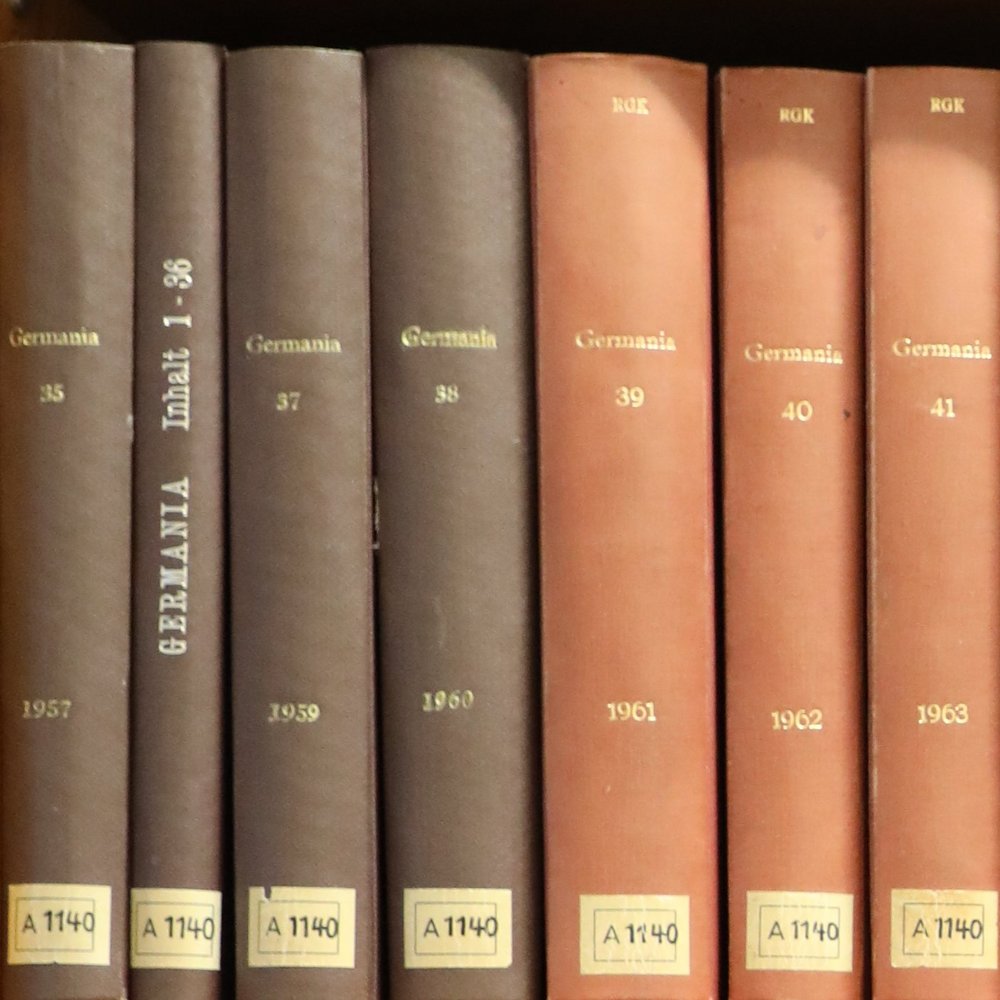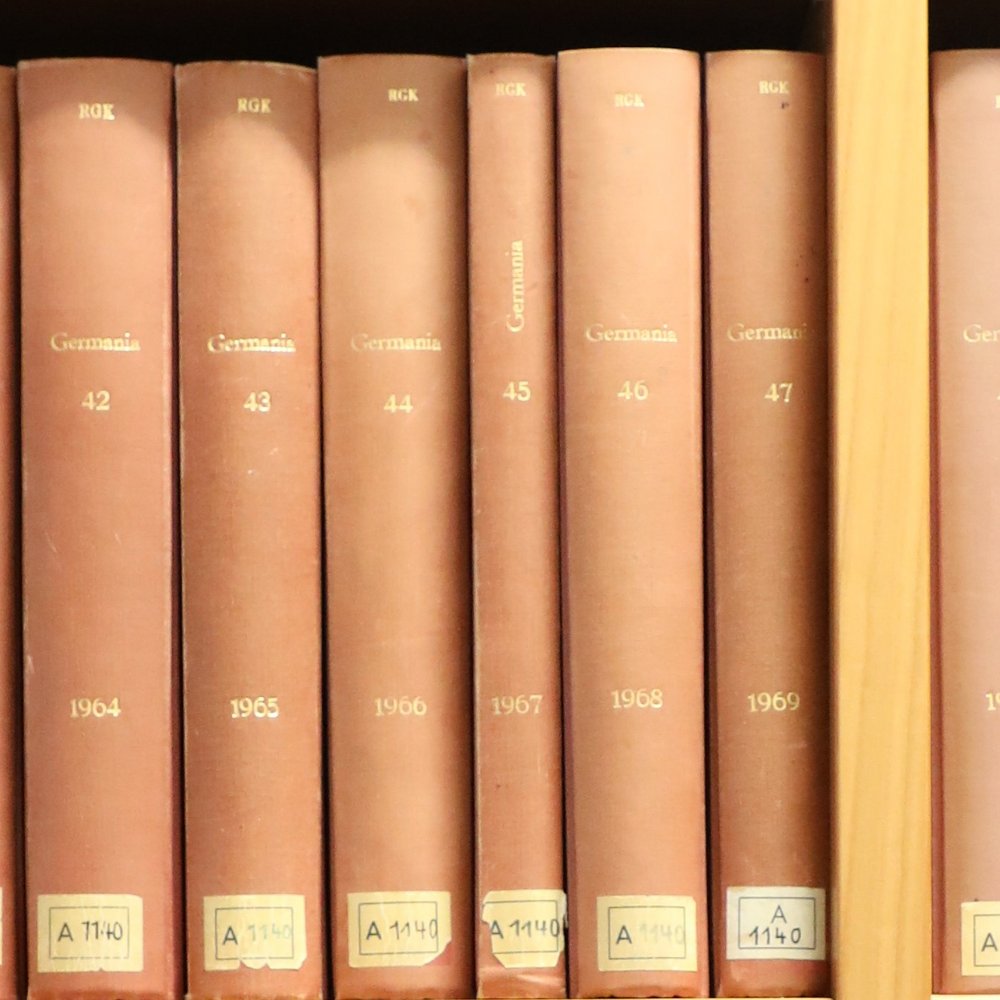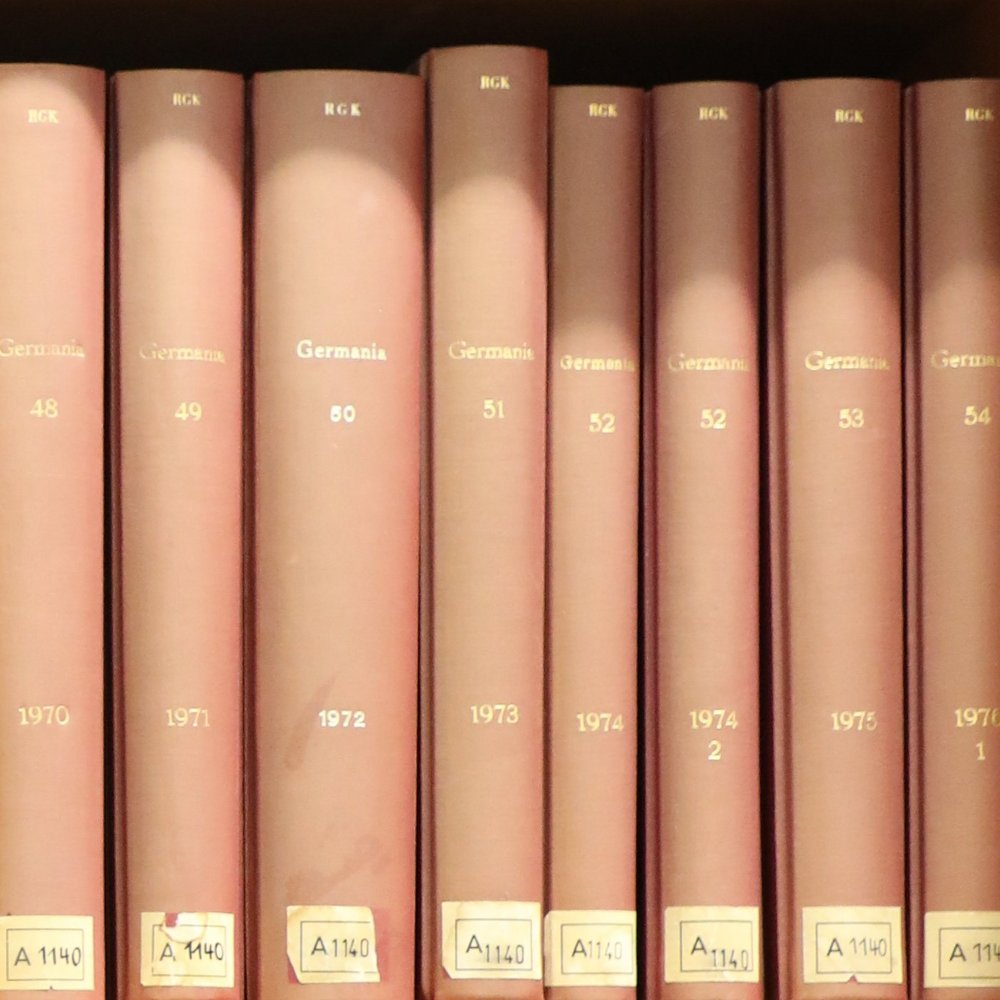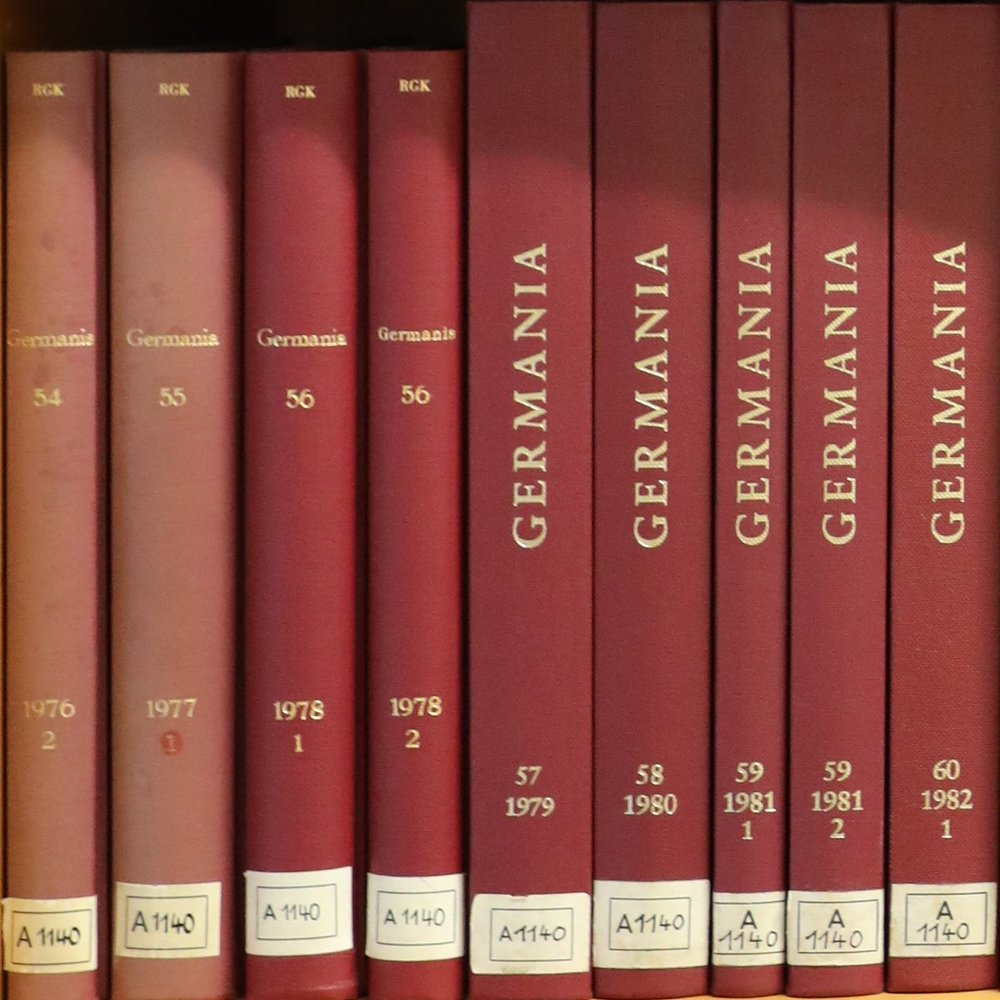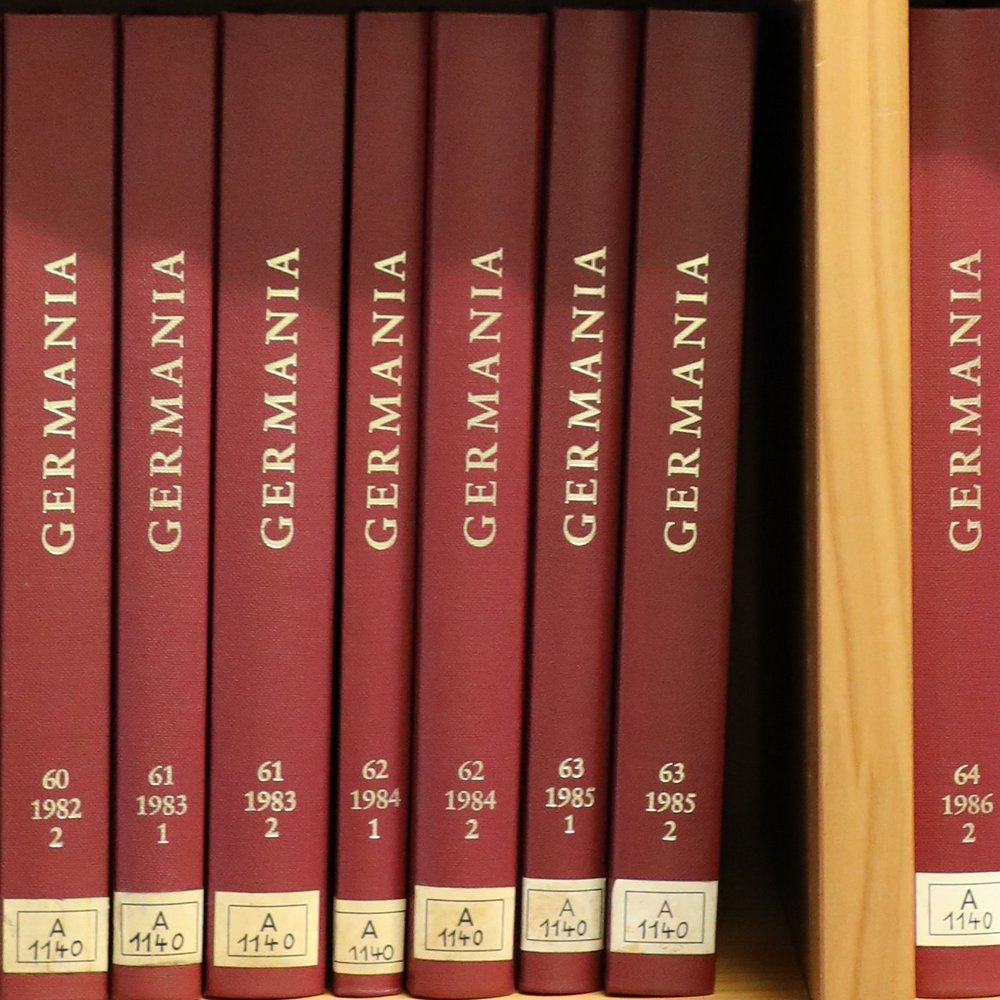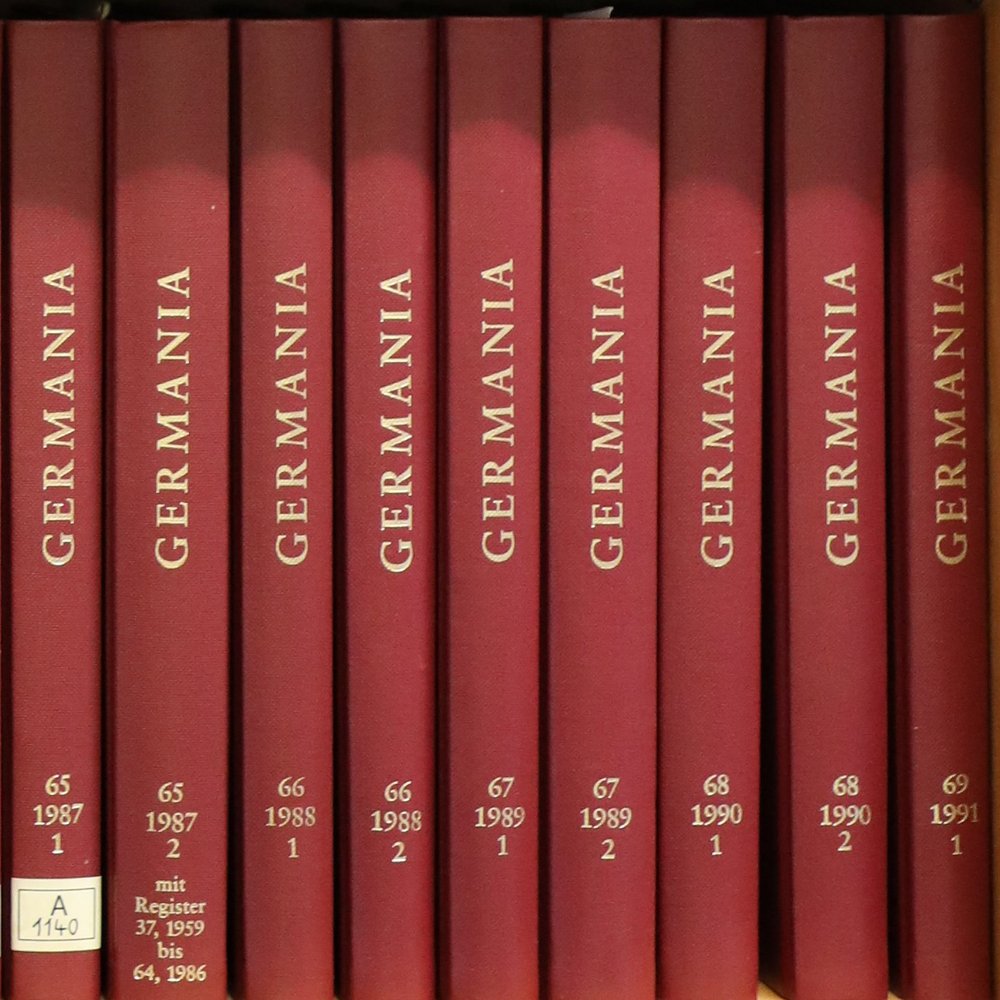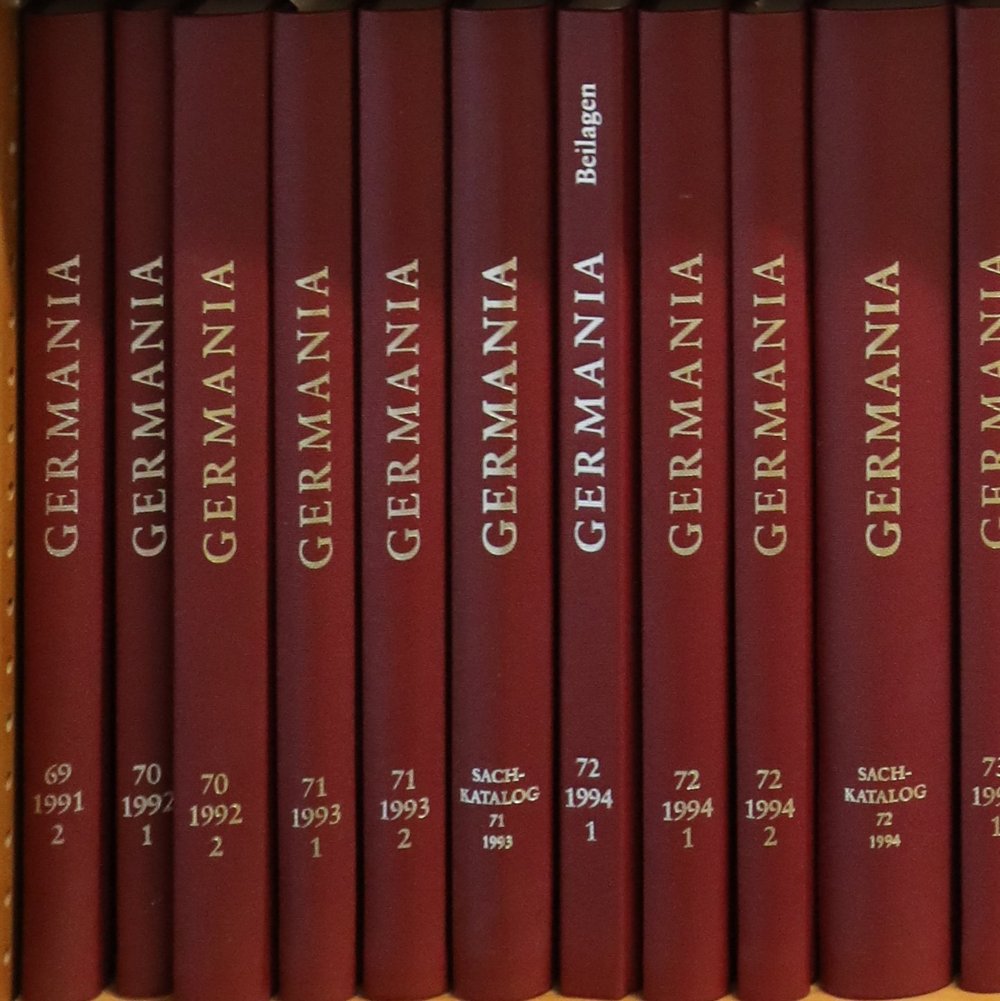
Publikationen der RGK © DAI // Oliver Wagner
Editorial Office
Profile
The editorial office is responsible for the issuing of the RGK’s various publications. These comprise its two journals, Germania and the Bericht der Römisch-Germanischen Kommission as well as a number of publication series treating different topics relating provincial Roman archaeology in Europe. It also coordinates the dissemination of the RGK’s brochures and monographs. It furthermore is mandated with the advance of printed and digital publication concepts, and among others serves cross-institutional purposes in archaeological publishing by providing the RGK publication guidelines.
The RGK’s editorial team consists of several researchers, graphic designers, the editorial secretariat, and various student and academic assistants. They coordinate the individual stages of publication which comprise the call for manuscripts and the peer reviewing process, the academic editing, the preparation of digital supplements and of typesetting, as well as the supervision of the last production stages including the presentation of the final digital and printed products. The RGK thus is committed to free access to scholarly and other matter via the internet and actively participates in the development of digital publishing concepts, e.g. for editions. It hence closely collaborates with the editorial staff at the DAI headquarters and the Specialised Information Service Ancient Studies called Propylaeum. A rapid and wide dissemination of research accordingly is considered just as relevant as the maintenance of high quality standards in the publishing process. The Advisory Board of the RGK and two international journal advisory boards contribute to this.
Contact
Editorial office
Phone: +49 (0)69 975818-37
redaktionssekretariat.rgk@dainst.de – redaktion.rgk@dainst.de
The RGK editorial team can also be found on Academia.
address
Römisch-Germanische Kommission (RGK)
Palmengartenstraße 10–12
60325 Frankfurt am Main
submission of manuscripts
Manuscripts for our series or journals can be submitted to our editorial office at any time.
Publication Guidelines
The RGK editorial office readily provides information on issues relating to the publication of research results in general as well as at the RGK in particular. In addition to the RGK guidelines, which also apply to other German-language journals, we also provide assistance on digitally publishing research data and furnish information on indexing as well as on rights of use and licenses.
Authors, editors, and reviewers can consult our recommendations for authors as well as the RGK guidelines for publications, or else contact the editorial staff in case of questions. Our aim is to assure for the highest possible scholarly, edititing, and printing standards.
Assuring Quality
The RGK’s purpose is to continue to be one of the most renowned editors within international prehistoric and provincial Roman archaeology. With its journals and series it strives to reach both the scholarly community and the public in the best possible way with both facts and insights from current, interdisciplinary and theoretically comprehensive archaeological research. Submitted and acquired manuscripts are treated in compliance with the highest possible quality standards, which comprises peer reviewing next to the editors’ evaluations on content and form. The scientific advisory boards furthermore also contribute to constant quality assurance. Best possible print results, high image quality and first rate bookbinding too are highly prioritised. To this end, we work closely with external partners such as copy editors, typesetting offices, and book printers. In order to disseminate current research results as quickly as possible, however, we in addition to offset production also utilise the advantages of digital printing and printing-on-demand for certain publications, while maintaining high quality standards.
Scientific Advisory Boards
A scientific advisory board advises the RGK on the development and implementation of its publication strategy. It may, for instance, recommend the approval of manuscripts for publication in the RGK’s publication series. It furthermore since 2022 receives guidance from two scientific journal advisory boards.
Members of the scientific advisory board of the journal 'Bericht der Römisch-Germanischen Kommission' are:
- Prof. Dr. Manuel Fernández-Götz, Universität Oxford
- PD Dr. Doris Gutsmiedl-Schümann, Freie Universität Berlin
- Ass.-Prof. Dr. Barbara Hausmair, Universität Innsbruck
- Prof. Dr. Alexander Heising, Universität Freiburg
- Prof. Dr. Doris Mischka, Universität Erlangen-Nürnberg
- Prof. Dr. Jan Schuster, Universität Łodz
- Prof. Dr. Helle Vandkilde, Universität Aarhus
Members of the scientific advisory board of the journal 'Germania' are:
- Prof. Dr. Bogdan Athanassov, Universität Sofia
- Prof. Dr. Sebastian Brather, Universität Freiburg
- Prof. Dr. Amy Bogaard, Universität Oxford
- Prof. Dr. Daniela Hofmann, Universität Bergen
- Dr. Jutta Leskovar, Museum Linz
- Prof. Dr. Jiří Macháček, Masaryk Universität Brünn
- Prof. Dr. Katharina Rebay-Salisbury, Universität Wien
- Dr. Philip Verhagen, Universität Amsterdam
Impressions
Journals and series
Publishing at the RGK
Peer Review
To ensure the quality of our scientific publications, submitted manuscripts are subject to the peer review process. The editors and publishers of series and journals select at least two independent external reviewers to review the anonymised manuscripts. Together with the RGK’s evaluation, these reviews are also sent anonymously to the submitting authors or editors.
Manuscripts for our series or journals can be submitted to the editorial office at any time. Please note our information for authors.
Open Access
The RGK, like the DAI as a whole, is committed to the principle of open access publishing, i.e. the idea of making knowledge and findings available and comprehensible as freely as possible. We were involved in the formulation of the Mainz Theses on Open Access Publishing in Archaeology. Since 2017, our journals “Bericht der Römisch-Germanischen Kommission” and “Germania” have also been published online in Open Access (Gold Standard) at the same time as the print version. We are working on making the majority of journals and books that were previously only published in print also available in digital form. This applies to new publications as well as those that have already appeared. In the future, genuine digital formats, which are more flexible than pure print files, will make it easier to access published knowledge and faster to access the latest research findings.

